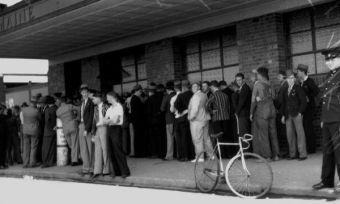We’ve all been through that pre-Christmas work stress at some point throughout our lives. In a recent report from CQ University, Dr Malcolm Johnson offers some advice…
As we approach Christmas, it is likely that stress begins to build. An intensity of workload, complete with a small holiday deadline can sometimes become quite a dilemma. The intensification of these pressures are likely to increase the work-to-life conflict that occurs around this time of year.
CQ University Business academic, Dr Malcolm Johnson, describes this process as a “monsoonal build-up” and believes that staff burnout, resulting in staff turnover in the New Year is a direct result of this.
“Christmas provides a time for reflection and recalibration. With societal changes in values there is a shift towards higher prioritisation of family and private life,” he said.
Understanding that work/family life conflict is highest for those who place deep value on both work and family, and in some aid, Dr Johnson provides the following New Year resolution checklists:
For individuals:
For organisations:
“As evidence of your commitment to these principles, be sure to leave your laptop in your briefcase for the duration of your holiday break!” Dr. Johnson continued.
Here, at CANSTAR, we have also put together a list of top tips to follow this holiday season to avoid the extra stress:
1. Plan ahead
Instead of leaving everything to the last minute, take some time out of your day to make a detailed Christmas plan. Start by making a list of things you can do before the holiday season, such as shopping, presents, decorations, and/or travel arrangements. Try to prioritise the items on your list: can they be done now? Are they essential? Many recipes can be, at least in part, made ahead of time and frozen, so consider that option as well.
2. Delegate
If you feel like the entire pressure of the holiday season is entirely on you, it’s okay to delegate tasks and reduce your workload. If you have children, get them to help with small, but important tasks like decorating the tree, or wrapping presents. If you’re hosting the family Christmas lunch, see if you can get different family members to each bake a different course and bring them all along to save you from cooking everything. You’ll be surprised how much time you’ll save just from this step!
3. Small tasks
When you’re balancing a number of different tasks, it can be hard to see anything but a giant workload just waiting to be done. And most of the time, you don’t even know where to start! It’s important to remember, especially around Christmas time, that by breaking each workload into smaller, more manageable tasks and tackling them one by one, you can get through them a lot more efficiently, and a lot less stressfully.
4. Avoid excessive alcohol/caffeine
When your body is under stress, it produces a hormone called cortisol, which prepares you for ‘fight or flight’ situations. It is the same hormone triggered by the caffeine levels in coffee so opt for decaffeinated coffee or herbal tea this holiday season, to help calm your stress levels, and aid in sleeping. Most other de-stressing articles may tell you to avoid alcohol altogether forgetting the fact that it’s Christmas! In saying that, by taking the time to enjoy that Irish Cream, try to avoid excessive alcohol consumption as it dehydrates your body, and ensure you keep your water levels up.
5. Know when to stop
Sometimes when we get into a stressful situation, it can be difficult to remember to rest. We get so focused on ensuring everything is perfect, we forget to take care of ourselves. Don’t forget that it’s your Christmas too so ensure you take the time to relax, have fun, laugh, and be merry. Enjoy this magical time of the year and everything it has to offer!









Share this article